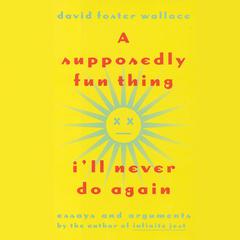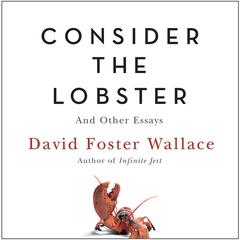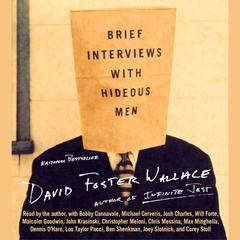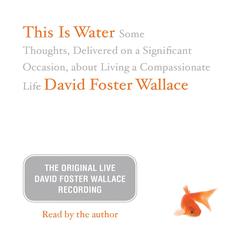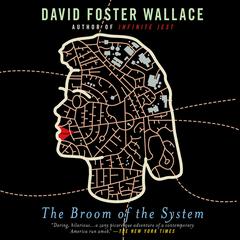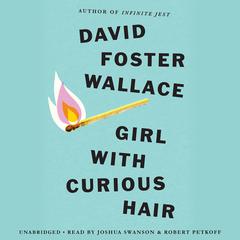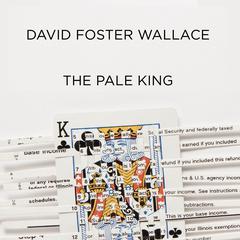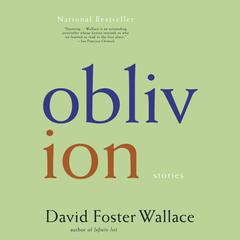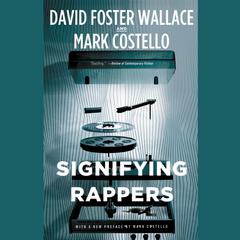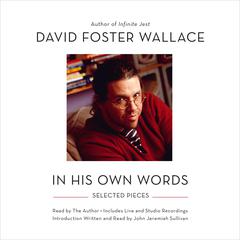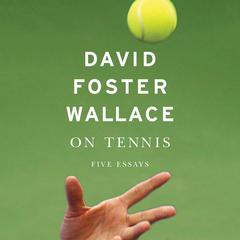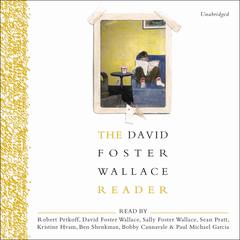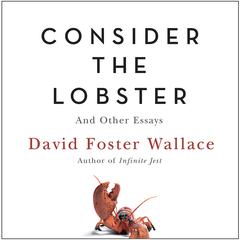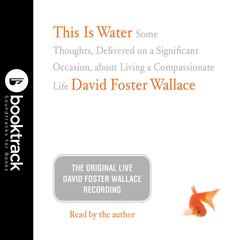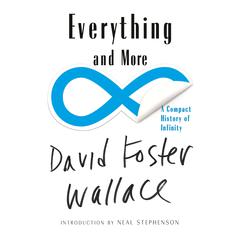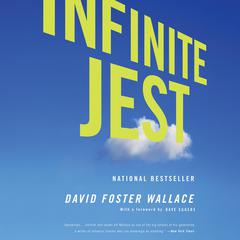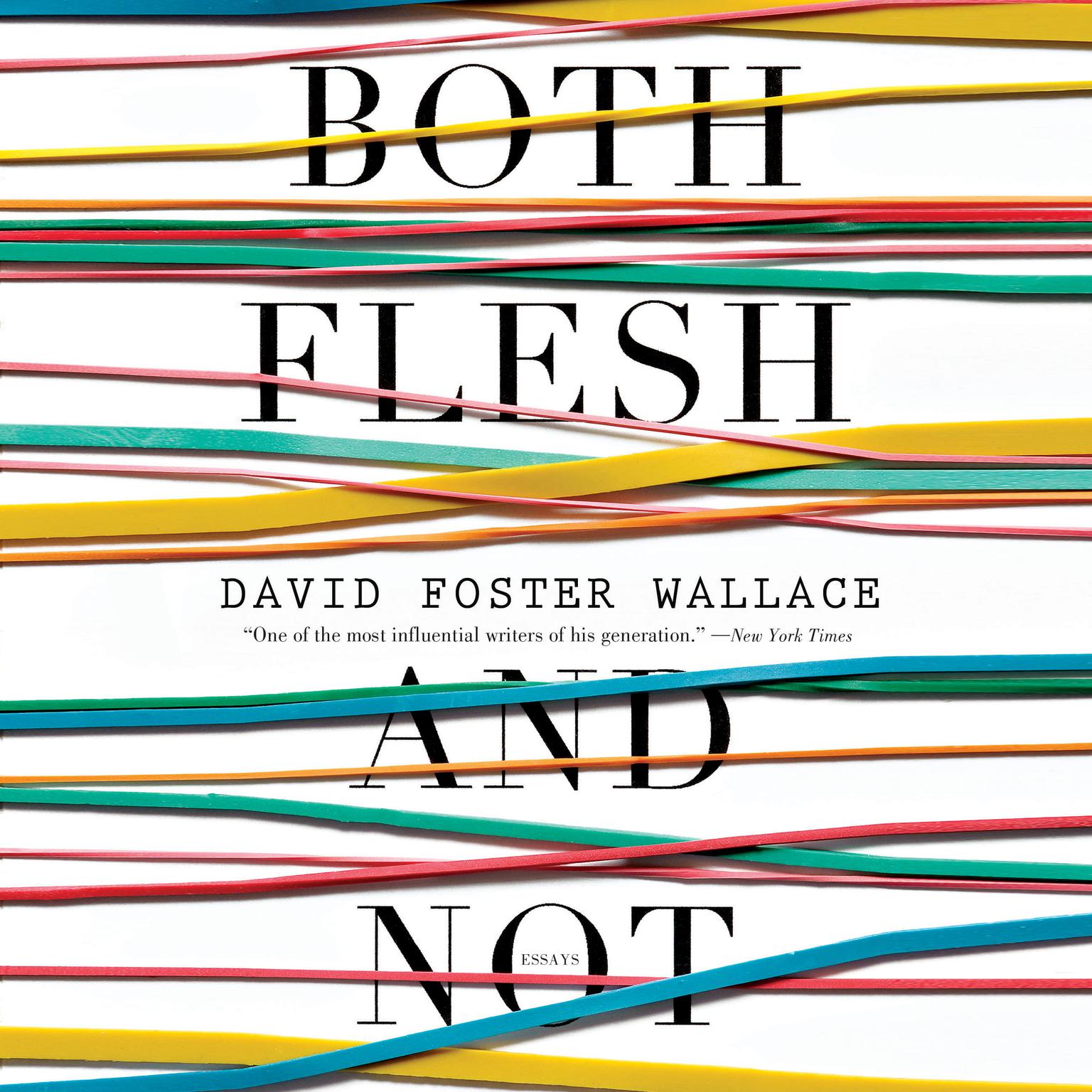 Play Audiobook Sample
Play Audiobook Sample
Both Flesh and Not: Essays Audiobook
 Play Audiobook Sample
Play Audiobook Sample
Quick Stats About this Audiobook
Total Audiobook Chapters:
Longest Chapter Length:
Shortest Chapter Length:
Average Chapter Length:
Audiobooks by this Author:
Publisher Description
Brilliant, dazzling, never-before-collected nonfiction writings by "one of America's most daring and talented writers." (Los Angeles Times Book Review).
Both Flesh and Not gathers fifteen of Wallace's seminal essays, all published in book form for the first time.
Never has Wallace's seemingly endless curiosity been more evident than in this compilation of work spanning nearly 20 years of writing. Here, Wallace turns his critical eye with equal enthusiasm toward Roger Federer and Jorge Luis Borges; Terminator 2 and The Best of the Prose Poem; the nature of being a fiction writer and the quandary of defining the essay; the best underappreciated novels and the English language's most irksome misused words; and much more.
Both Flesh and Not restores Wallace's essays as originally written, and it includes a selection from his personal vocabulary list, an assembly of unusual words and definitions.
Download and start listening now!
"i mean, at this point it's incredibly likely that many of us have probably already hunted down and devoured at least half of the content that's actually going to be in this, but that's no reason to not get excited, right?"
— Lachlan (4 out of 5 stars)
Quotes
-
“At their best these essays remind us of Wallace’s arsenal of talents: his restless, heat-seeking reportorial eye; his ability to convey the physical or emotional truth of things with a couple of flicks of the wrist; his capacity to make leaps, from the mundane to the metaphysical, with breathtaking velocity and ardor.”
— New York Times -
“David Foster Wallace left the essay form in a different state than it was in before he wrote. He wrote of Federer that he had ‘exposed the limits, and possibilities, of’ his sport. Wallace himself, with mystery and metaphysics galore, did no less for the essay.”
— Chicago Tribune -
“I doubt there’s a single person reading this paper who needs me to explain why they should be excited about a new collection of previously uncollected David Foster Wallace essays. His nonfiction is born out of the sort of bitingly perceptive but deeply compassionate humanity our world needs more of, and we should savor every last bit of it he left us.”
— Rian Johnson, writer and director of Brick and Looper -
“Like previous collections of David Foster Wallace’s essays, Both Flesh and Not displays the late author’s vast intellectual curiosity…showcase[s] Wallace’s ever-evolving, intimate, and often humorous relationship with language.”
— The New Yorker -
“One of the best writers of our time…If you’ve never read David Foster Wallace before, his masterful study of Roger Federer, included in this anthology, is an ideal place to start.”
— Marie Claire -
“A collection spanning twenty years of Wallace’s nonfiction writing on subjects as wide-ranging as math, Borges, democracy, the US Open, and the entire spectrum of human experience in between…Both Flesh and Not is excellent in its entirety and just as quietly, unflinchingly soul-stirring.”
— Atlantic -
“The best passages are those that celebrate words and the author’s relationship with them…It is a treasure trove for those who love the complexities of language.”
— Time Out -
“David Foster Wallace’s essays show a man struggling to figure out the complexities of discernment and judgment…It isn’t merely wonderful writing. It is a model of adult citizenship…In Both Flesh and Not, he is at the top of his game.”
— The Daily Beast -
“These essays demonstrate Wallace’s interdisciplinary approach to both pop culture and abstruse academic discourse…For Wallace devotees, these essays are required reading.”
— Booklist -
“It brings some welcome exposure to some of his best pieces.”
— Kirkus Reviews
Awards
-
A 2012eMusic Best Audiobook of the Year
-
A New York Times bestseller
Both Flesh and Not Listener Reviews
-
" They might be scraping the bottom of the barrel. "
— David, 1/25/2014 -
" Aptly titled. Despite its suspiciously large type size and obvious padding (e.g., interspersed excerpts from DFW's personal file of words he'd learned[*]), and though I'm certain Wallace wouldn't have had this published in this form had he lived, this wasn't a total corpse rape. About half of it can be fairly called juvenilia (at least by DFW's later standards, if not by others'), the sort of thing that I'm certain didn't get republished during Wallace's lifetime because he came to be embarrassed by it, including a couple of long-winded and cranky grad-school pieces about literary theory and a frustrating, sanctimonious essay about sex and love that makes a puritanical argument for AIDS as a cultural cleansing agent(!)(**). The other half, more or less, makes a strong argument for DFW as a great explainer of things, and a better case than "The Pale King" for the depth and significance of what we lost when he died. The two tennis articles alone (well, one is only tangentially about tennis as such) almost justify the purchase price - the one on Roger Federer isn't the best nonfiction piece he ever wrote, but it's pretty close - and I say this as someone who doesn't give a RAT'S ASS about tennis; the dictionary usage notes justify the rest of it and then some, and there are a couple of other excellent pieces as well (I was especially fond of the behind-the-curtain look at the essay-anthologizing process). Sure, this is hit-or-miss, but so are pretty much all of the other DFW books. (*...which, if nothing else, will give most readers an occasional frisson of superiority at already having learned words that DFW, long after he became Kind of a Big Deal, had to teach himself ... and at catching the occasional outright error of definition. I found at least one, and no, I'm not going to say what it is. **Argument with a ghost: I was surprised that DFW - even young, hormonally frustrated DFW - failed to see through the tired "free love" trope about the '60s/'70s counterculture, to get that it wasn't an all-consuming tsunami. Based on what I know of his biography, I would have expected him to intuitively grasp that sociosexual interaction is *always* going to be easier for certain types of people than it is for others, regardless of the situation, which makes the knights-and-dragons metaphor on which he bases the piece seem facile and fatuous. Sure, "love" got relatively "freer" during that period, but that just means the dragons got a *little* easier to kill; it doesn't mean there weren't any dragons. It was the kind of argument I'd expect from, say, Pat Buchanan.) "
— Evan, 1/17/2014 -
" Few exceptional chapters, but a lot I didn't care for "
— Ehren, 12/29/2013 -
" Essays he didn't think were necessarily good enough for inclusion in collections while he was alive. Happily that's only true of maybe two or three of these. Which means it's only great instead of super-great. "
— Alex, 11/27/2013 -
" Great essays. The one on Wittgenstein's Mistress is, well... it is something. Quite dense. Read if the topic interests you. The others are all very worthy. His analysis of writing programs is quite welcome and damning. "
— Randall, 11/25/2013 -
" Love the essay on Federer. Foster is a gifted writer. He captures well elements of the beauty of the game of tennis. I especially like his thoughts on what it is to be a creature of flesh, the mystery and the limitations. "
— Jennifer, 11/23/2013 -
" I'd actually give this a 3.5 if I could, as about half the essays are throw-aways and the other half are absolutely perfect. "
— Katie, 11/18/2013 -
" I wanted to like this essay collection more. Enough about tennis, already! "
— Starr, 11/10/2013 -
" I think I enjoy David Foster Wallace more when 1. listened to, not read and 2. in non-fiction form over fiction. The essays I liked, I LOVED. The essays I did not like, I skipped mid-way through, and I'm sorry to say there were a number of them--more of those than essays I liked. "
— Michelle, 10/3/2013 -
" Tennis essays are magnificent. Aloha "
— Marybeth, 7/24/2013 -
" obviously great, but not for everyone - if you're not interested in tennis, david markson, or math, there are only a handful of longer essays that will be appealing in this book. "
— Alexis, 5/28/2013 -
" Read as part of the 24 hour book club. "
— Leah, 12/19/2012 -
" i cheated. I was suppose to be reading "Pale King" but wanted DFW-lite and read these essays instead. His non-fiction is easier than his fiction -- his stories are so expansive you gotta stretch to consume theme. "
— Alisa, 12/16/2012 -
" Equal parts sloggy + beautiful. "
— Kitch, 11/3/2012
About David Foster Wallace
David Foster Wallace (1962–2008) was the New York Times bestselling author of Infinite Jest, The Broom of the System, and Girl with Curious Hair. His essays and stories have appeared in Harper’s, the New Yorker, Playboy, Paris Review, Conjunctions, Premiere, Tennis, the Missouri Review, and the Review of Contemporary Fiction. He received numerous awards, including the Whiting Award, the Lannan Award for Fiction, the QPB Joe Savago New Voices Award, and the O. Henry Award.
About the Narrators
Robert Petkoff is an actor and audiobook narrator who has won a prestigious Audie Award and multiple AudioFile Earphones Awards and has been named an AudioFile Golden Voice. He has appeared on Chappelle’s Show, Law & Order, and Quantum Leap. His Broadway credits include Sir Robin in Spamalot, Perchik in Fiddler on the Roof, and Tateh in Ragtime.
Katherine Kellgren (1969–2018), narrator and actress, appeared onstage in London, New York, and Frankfurt, including in the role of Laura in a regional production of The Glass Menagerie and appearances on Comedy Central. In recognition of her mastery of audiobook narration, she received many honors, including the prestigious Audie Awards, with four for best female narrator; the Odyssey Award; Publishers Weekly Listen Up Award; dozens of AudioFile magazine Earphones Awards; an AudioFile Golden Voice Award; Booklist Voice of Choice award; and acclaim from press and listener reviews.




